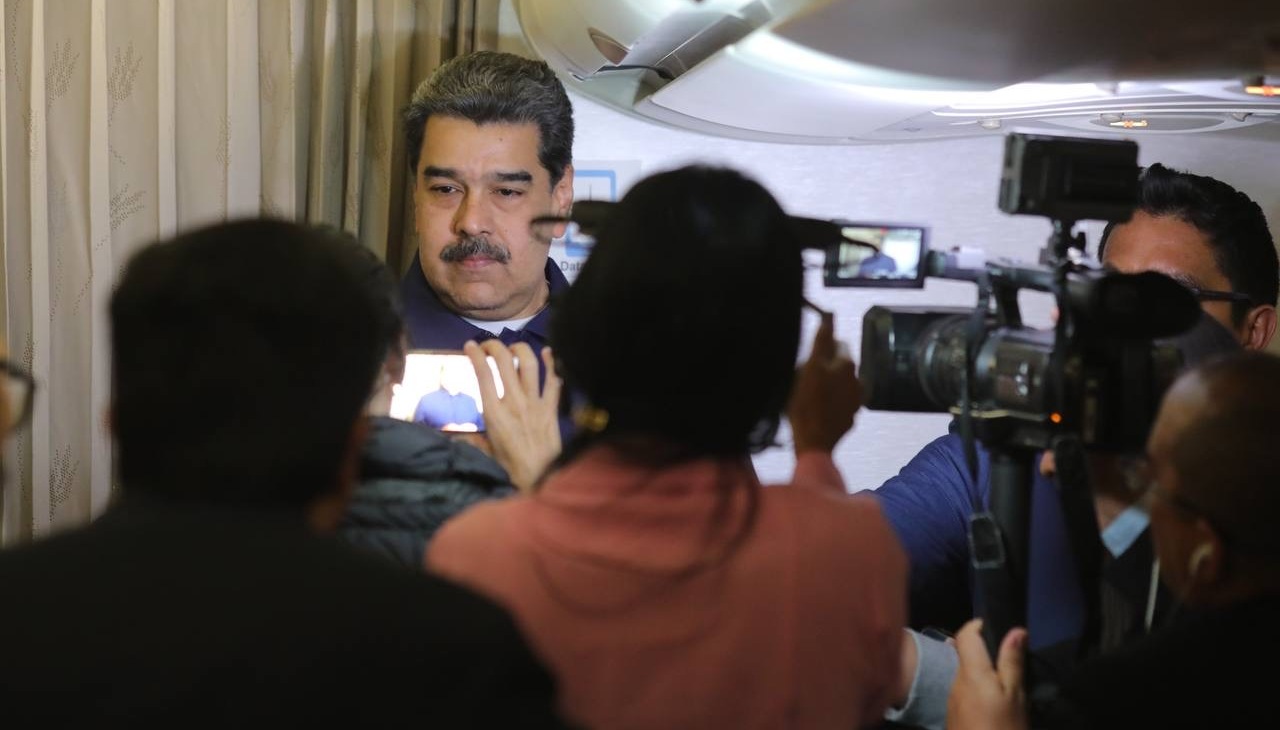
Progressive governments seek a diplomatic solution to the political crisis in Venezuela
With the support of the governments of Colombia and France, it seeks to lay the foundations for the start of a regional dialogue.
After the Colombian press announced last weekend the possible intention of the presidents of France and Colombia to create a scenario for regional dialogue to overcome the social and political crisis in Venezuela, the leaders hope to have the support of countries like Mexico, Chile and Argentina.
Although it had been warned that a summit could be held this week between the aforementioned governments, to lay the foundations for a progressive negotiation, for now the meeting does not have a specific date or place for its realization.
However, although the meeting should be postponed, the international political will has been felt in recent days and actions are being sought at the diplomatic level that can consolidate a road map to start these talks.
Amistad y accion conjunta. Francia y Colombia. Por la Paz y por la Vida pic.twitter.com/PQqRYHAaq2
— Gustavo Petro (@petrogustavo) November 10, 2022
Free and democratic elections
The government of Gustavo Petro, which reestablished relations with its counterpart in Venezuela, which had been suspended during the previous mandate, demanded from Maduro, as a floor to negotiate, guarantees to advance free and democratic elections in the country, which would be held out in 2024.
"The international community feels that this thing in Venezuela has become a problem and wants to get rid of it now. In addition, there are international factors that force us to find a solution, such as the crisis caused by the pandemic, the war in Ukraine, the economic problems that have arisen, the confrontation with Russia and China... these are obviously high-profile challenges compared to Venezuela,” Jesús Seguías, political analyst and president of the consulting firm Datincorp, told DW.
Puebla Group
Several of the leaders who promote a negotiated solution to the Venezuelan crisis are part of this progressive alliance that has spent years trying to find a peaceful solution to these conflicts.
The Chilean Marco Enríquez-Ominami, political coordinator of this group, highlighted:
RELATED CONTENT
From the first day we have argued that foreign policy should be much less ideological and much more political, and in the case of Venezuela, dialogue is the way to find a solution.
Turn in Washington
While the U.S. recognizes the failure of the policies directed at Venezuela implemented during the Donald Trump administration, as well as the failed strategy of an interim presidency under Juan Guaidó, it is currently seeking to create a scenario in which the international sanctions that affect the most fragile population and generate more rejection every day, give way to a dialogue that allows the citizens of this country to enjoy their rights and freedoms.
The viral video of Nicolás Maduro shaking hands with the French president in the middle of COP27 seems to give the impression that the new strategy around the Venezuelan government is already beginning to be applied by the most powerful states in the world.
"He was one of the driving forces behind the recognition of the Guaidó government and that is why the change is very important. And the fact that France has decided to produce a dialogue is central. And therefore this meeting between heads of state, at least Petro and Alberto Fernández, in France, with the interested parties, it has an immeasurable impact,” said Enríquez-Ominami, referring to the change in Macron's position.
Appointment agreed
Although it cannot be confirmed whether a meeting of leaders will actually take place this week in Paris, a meeting in Mexico between its president, Andrés Manuel López Obrador, and the leaders of Chile, Gabriel Boric, Argentina, Alberto Fernández, and Brazil, Luiz Inácio Lula da Silva, has already been agreed for next November 24.

There they will meet to discuss regional integration and, surely, they will address the issue of the Venezuelan crisis that has had repercussions throughout Latin America.
“The United States needs allies to validate the new position, which is the search for consensus, agreements and negotiations to reach a peaceful and electoral solution. The problem in Venezuela entered another dimension, both because of the changes in government that have taken place in Latin America and the political changes that have taken place in Washington and Europe,” concluded Seguías.










LEAVE A COMMENT: